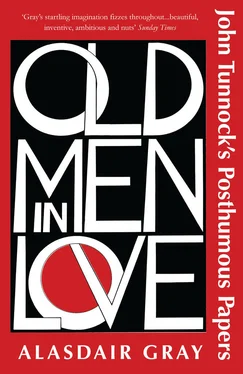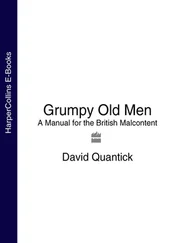Some disapproving murmurs and one cry of “Boo!” from the jurors.
SOCRATES: ( snapping fingers ) Blast! I shouldn’t have said that! Mr President, you see what a child I am in legal matters: please tell the jury to forget I said something good about Sparta!
PRESIDENT: ( rolling up his eyes and sighing ) Just defend yourself, Socrates.
SOCRATES: ( humbly ) I’ll try. I was pleased to hear Anytus say some true things about the days when I was a young fellow of forty and regarded, quite correctly, as a simpleton who wanted to be wise but didn’t know how. What turned a tongue-tied stupid stonemason into the famous, extraordinary me? How did a National Service private with a habit of sleeping on his feet become the money-grubbing pederast you’ve seen caricatured on the stage by my pal Aristophanes: the menace to civilization who terrifies Anytus; the buffoon of Athens, as some folk call me; the wise man of Greece — if you’d rather believe Apollo, God of sunlight and harmony? That isn’t a rhetorical question. Shall I answer it?
Someone yells “Get to the point!” Socrates nods, sits on the edge of the stage with his legs dangling and says in an ordinary voice:
SOCRATES: Alcibiades made me a philosopher. I met him in the army at the start of the war and I loved that beautiful man. I wanted to fascinate him, delight him, give him something great to remember me ever afterwards by. And I had nothing to give. Nothing at all. ( he stares at the palms of his hands ) A stonemason. Ugly. Shy. Until I spoke to him. And then I was inspired. ( he looks at the jury ) Love inspires us all, of course. It gives some people the strength to support a husband, a wife, a family for years and years and years. Love never made me as strong as that — I support my wife and children on handouts from friends — but the love which makes others strong made me see things clearly, yes it did. Anytus says my wisdom is evil, that’s daft. If I do evil then what Anytus calls my wisdom is only cleverness — there are many clever men in Athens but I’m not one. Only love could have taught me the wise trick I played on Alcibiades. I had nothing of my own to attract him so I gave him back the lovely thing he was giving me: the vision of his own true splendid self.
ANYTUS: ( loudly and coldly ) Toady! Sycophant! Arselicker!
Disapproving cries of “Yes!” “That’s right Anytus!” “Boo!” from the jurors, during which Socrates rises and stumps cheerfully up and down before the stage.
PRESIDENT: You’re out of order, Anytus!
SOCRATES: No he isn’t, I like a bit of friendly badinage. But he’s missed the point, as usual. I couldn’t make Alcibiades love me for ever by flattering him — ( he points to Alcibiades with his stick ) — by the way, you still love me, don’t you?
ALCIBIADES: ( laughing with appreciation at the show ) Yes!
SOCRATES: ( laughing and smiling ) Yes! ( to the jury ) You see, arselicking or flattery, as some people call it, is praising a man for something he’s proud of. It can never please for very long because we all know, in our hearts, that we are only proud of the rubbishy bits of ourselves — the parts we would be better off wothout. A short while ago Alcibiades stood on that very spot — ( points with stick ) — and very solemnly told us his uncommon courage had astounded the world. And nobody laughed! I was so amazed that I couldn’t. ( points stick ) Him? Alcibiades? Courageous? Because he gambled with an army and lost it? A gambler can’t be brave! If he wins people are fascinated. If he loses people are fascinated. Either way he gets what he wants, which is people saying, Oo aren’t you wonderful, oo aren’t you wicked! Alcibiades the daring gambler is rubbish! Just rubbish! The true Alcibiades I love knows it — when he listens to me. I love him because he’s lonely and desperately humble. The men of Athens praised him because he was wild and glamorous. Who flattered him, you or me? Fancy putting a child of twenty-five in charge of an army then blaming him when he runs away!
ANYTUS: He was not a child! We followed him because he tricked us! He made us think his allies were rich by showing treasure chests full of broken pottery with a layer of gold on top!
SOCRATES: You must have been very keen to be fooled if you were fooled by a schoolboy prank like that. I honestly thought a democratic majority would have more sense, but when my darling stood up in parliament and announced his grandiose cheeky, world-conquering scheme most of you acted like a Persian Emperor gone gaga. Instead of laughing at him you idiots voted for him!
Loud cries of annoyance from jurors. Socrates climbs on stage again, raises a hand, and shouts at them: —
SOCRATES: Men of Athens, were you blind? Did you not see where Alcibiades’ talent lay? He gave me a new kind of wisdom which I have given to the world. Throughout Greece clever professors are calling me the father of moral philosophy — Alcibiades was father. I’m the mother of moral philosophy. Of course like many fathers he refused to acknowledge the child, but I blame you idiots for that –
Protesting cries become uproar. Socrates climbs up on his chair and points with his stick.
SOCRATES: ( yelling ) Men of Athens, I accuse you of seducing, corrupting and perverting my darling! If you’d left him with me he would have become a philosopher, which is what everyone should be, because. .
The jurors’ vocal reactions drown his words. Many boo and shout, many are laughing, many argue vehemently with neighbours. Socrates stands on the chair, both hands folded patiently on the stick-handle, waiting to continue. The president has left his chair and stands conferring with Anytus. Anytus turns to the jury and raises his hands for silence. It gradually happens.
ANYTUS: ( sternly ) Yes, men of Athens, we are all disgusted by the cynical, facetious abuse that man has heaped on us. But we are here to judge him, and judges should be calm.
PRESIDENT: ( huffily ) A man must be heard before we condemn him. That’s the law. ( he goes back to his seat )
ANYTUS: ( reasonably ) Outcries only make the trial last longer. Save your anger till it’s time to vote and then show what you think. It’s your vote that matters. ( he sits )
SOCRATES: Thank you for that friendly speech, Anytus. ( climbs down and wipes his brow ) Phew! ( to the jury ) You had me quite excited there. I could never be a politician — too emotional. ( he sits on chair ) Well, when Alcibiades left me — for you lot — O, I was depressed. I didn’t realize I’d become a philosopher. Love for him had untied my tongue and let me think aloud. I thought all that would stop now. It didn’t! I discovered I could talk to anyone — pretty young boys, ugly old men — anyone! I’d acquired a gift. But I swear by the great God of Heaven that I did not know I was being wise, I thought I was just finding out what people thought. Those I spoke to kept coming up with astonishing ideas, and saying they had learned them from me. ( he chuckles ) I’ve never had an original idea in my life! They wrote books, too, and the critics blamed me for those as well. Anytus mentioned Critias’ attack on democracy; he should have mentioned Kairafon’s defence. Kairafon said he learned that from me and the dictators banished him. Anyway, one morning as Homer puts it “A thunderbolt descended from the blue Aegean sky.” ( spreading his arms wide ) “News from Delphi! Oracle’s Astounding Revelation! Nobody in Greece is wiser than Socrates!” ( drops hands, suddenly really puzzled and worried ) Nobody wiser than me? But friends, I am like other people! When love and friendship inspire me I have glimpses of beauty and goodness; otherwise there is nothing in here — ( taps chest ) — nothing but a little voice which sometimes says “No. Don’t do that.”
Читать дальше












